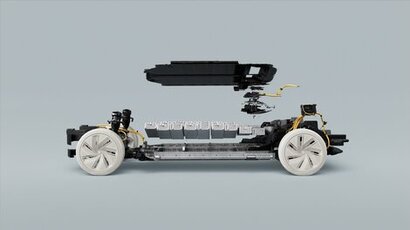
By integrating Breathe’s software in Volvo Cars in-house developed battery management platform to optimise and improve the performance of its charging technology, Volvo can provide its customers with even faster charging times and an enhanced overall driving and charging experience.
The company will implement the new technology in its new generation fully electric cars, where it expects the technology will reduce the time it takes to charge vehicles from 10 to 80 per cent charging state by as much as 30 per cent, while maintaining the same energy density and range. Even better: the charging time improvements will last across the full battery life cycle without impacting its health status.
The collaboration with Breathe is the result of a sourcing agreement for its flagship product, Breathe Charge, and represents the latest investment by the Volvo Cars Tech Fund, Volvo’s corporate venture capital arm. It reflects the company’s ambition to lead the development of premium electric cars and become a fully electric car maker by 2030.
“The investment and commercial partnership with Breathe helps us address a familiar pain point for electric car customers and makes our charging performance even more competitive” said Ann-Sofie Ekberg, CEO of the Volvo Cars Tech Fund. “Faster charging times, in the range where customers typically fast charge, represent a major step in the right direction as we continue to boost electric mobility and make it available to more people.”
Unlike traditional stepped charging which relies on pre-determined rules, Breathe’s software uses adaptive charging to dynamically control the battery in real-time, resulting in significantly shorter charging times.
Using algorithms, the software manages the charging process in line with the battery’s health to deliver the best driver experience while avoiding the risk of lithium plating, which can harm the battery’s performance and lifespan.
Volvo says its investment in Breathe helps position the company for an all-electric future, but it also fits with its ambitions of reaching net zero greenhouse gas emissions and becoming a circular business by 2040. While reducing charging times for vehicles, the technology achieves this without the need to change battery pack design or mine extra materials, without additional environmental impacts.
Also, since it is fully compatible with the hardware used in Volvo’s new generation fully electric cars, scaling will be easy as Volvo expects its electric sales to increase significantly in coming years.
For additional information:

